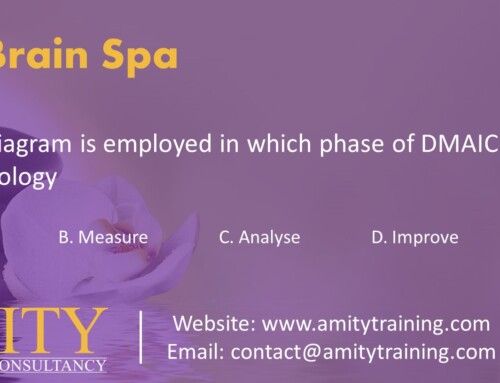Lean Six Sigma for Healthcare Industry
It is a general perception that the concept of Lean Six Sigma is applicable to the manufacturing sector. Over the years Lean Six Sigma has found its application in almost all the sectors including Lean Six Sigma for Healthcare Industry. Healthcare industry is an industry which is strictly driven by stringent processes right from the time the patient enters the hospital to the time he leaves the hospital. During this visit, from the perspective of a patient, he or she has to go through several processes be it appoint with the doctor, admission, medical test, treatment, post treatment procedures etc. At each of these stages, there is a detailed process that has to be followed and since it is a process, variation is bound to happen. Also there would be certain process steps that might not be adding value to the value chain. And if variation is inevitable, there comes the scope of Lean Six Sigma implementation.
The objective of Lean Six Sigma in a healthcare industry is to ensure that only those steps should be included that create value for the customer, in this case the patient and or attendants.
Hospital is a place where people come mostly when they are in need of medical support and assistance. So, any process step that is not required or if a process step or an activity consumes more time, than the specified tolerance limits, then this becomes another pain area or discomfort for the patient. So the Lean Six Sigma critically evaluates each and every process to ensure that the process is optimally tuned up to deliver results within the desired specified limits.
Likewise if we look at the usefulness of Lean Six Sigma from the perspective of the hospital management or the employees, they have to understand the voice of customer i.e. the patients and their attendants. If the processes are simplified, this will reduce the time required for each process. This results in reducing time to attend one patient, thereby giving them an opportunity to attend more patients during the day. This in turn brings more savings, more business and more revenues for the hospital.
Also if the concept of Lean Six Sigma is properly implemented, this would reduce the chances of errors which could be a matter of great concern both for the patients as well as for the hospitals.
Some of the broad benefits of Lean Six Sigma implementation in a healthcare industry are
- Reduce time take in admission procedures of the patients
- Reduces errors reading doctor’s prescription
- Reduce time for insurance claim processes
- Reduce visit of patients for repetitive disease
- Improve patient satisfaction score
- Reduce drug / medicine cost, etc.
This concept of Lean Six Sigma is applicable not only to hospital administrative staff, but also to the doctors, nurses, finance, stores, procurement, accounts, housekeeping etc. also.
The people of these departments should be training on various levels of Lean Six Sigma like Yellow Belt, Green Belt, Black Belt etc. Once they are trained on these levels. They would be adequately trained to take up improvement projects in their area of work, departments or even cross functional projects.







